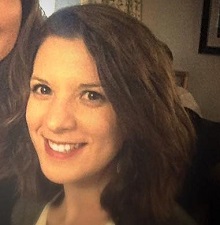
The main interest of all scientists is to find the right answers to our questions. Most researchers have an active interest in reporting and disseminating their work in the most transparent way possible. However, some of the incentives offered to researchers go against these principles. Although as scientists we want to find the correct answer to a problem, we are rewarded for publishing ‘positive’ and ‘novel’ results, whereas the incentives to finding the right answer are scarce. Getting published in ‘high impact’ scientific journals leads to more funding, prestige and promotions. This situation means that scientists often feel conflicted between doing what is asked of them to progress their careers and applying their best and most transparent scientific practices.
It has been a long interest of mine to learn about ways to make research more open and reproducible. Me and Thea Seiler-Vellame, a colleague from the College of Medicine and Health, attended the Reproducibility 2018 course in Windsor, funded by the ECNP and the BBSRC. After a fantastic and intensive course, we came back to Exeter with the desire to organise a workshop in Open and Reproducible Science. Towards the end of last year we were awarded a Researcher Led Initiative Award (RLI) from the University of Exeter Researcher Development and Research Culture team to organise such workshop.
Our aim was to bring together early career researchers interested in reproducible and open science practices, such as careful study design and hypothesis testing and good coding practices. We also wanted to inspire researchers to think of problems such as publication bias, p-hacking and hypothesising after results are known (Harking).
The workshop took place on June 6th and 7th at the University of Exeter. We had a first day with three talks from external speakers. Professor Marcus Munafò from the University of Bristol talked about Scientific Ecosystems and Research Reproducibility. We explained some of the current issues hampering scientific discovery, such as publication bias and lack of reproducibility. Next, Dr Jackie Thompson from the University of Bristol and University of Oxford gave a brilliant tutorial on data simulation methods with the programming language R. Our last talk of the day was by Professor Chris Chambers from the University of Cardiff. He talked to us about alternative way of publishing scientific work, in particular a new publishing model called Registered Reports.
The second day was focus on bite-size tutorials of some useful tools, such as R programming language, command line, Open Science Framework (OSF) and version control (e.g. github). These tutorials were delivered by researchers from the University of Exeter, Dr Eilis Hannon, Dr Jeremy Metz and Thea Seiler-Vellame. We were also privileged to have a webinar by Dr David Mellor from the Centre for Open Science.
The materials of our workshop are all available at https://osf.io/qfs2u/.
All in all, the workshop was a success and will hopefully help us establish a reproducibility network in Exeter!